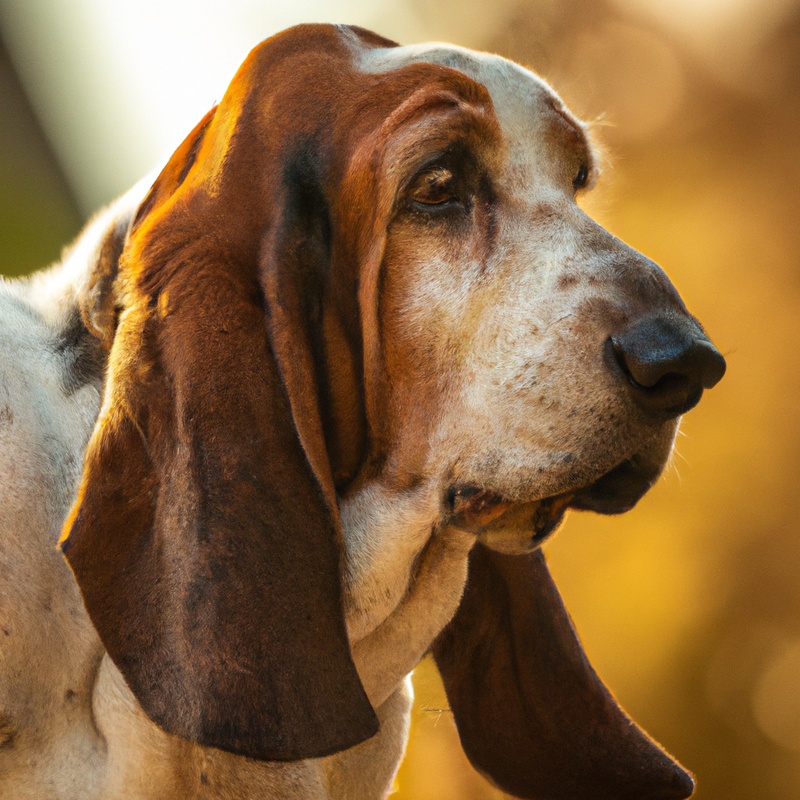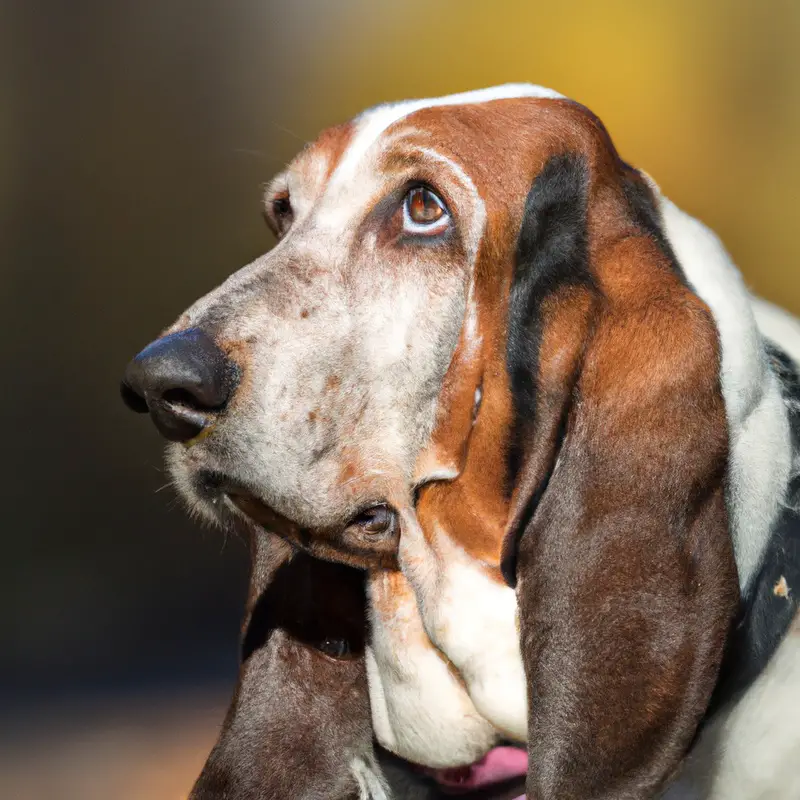How Do Basset Hounds Handle Being Left Alone For a Long-Term Deployment?
Key Takeaways:
- Basset Hounds can struggle with being left alone for long-term deployments due to their separation anxiety.
- Proper training and preparation can help Basset Hounds better cope with extended periods of their owner’s absence.
- Providing a comfortable and stimulating environment is essential to prevent boredom and destructive behaviors in Basset Hounds.
- Seeking the support of trusted caretakers or dog sitting services can offer Basset Hounds the companionship and attention they need during prolonged deployments.
Picture this: you’ve landed that dream job overseas, but your heart sinks at the thought of leaving your beloved Basset Hound behind for an extended period.
How will your lovable droopy-eyed companion cope with the loneliness?
As an expert in canine behavior, I’m here to put your worries to rest.
In this article, we’ll explore the temperament of Basset Hounds, delve into separation anxiety, and discover effective strategies to help them thrive during long-term deployments.
From establishing routines and crate training to finding support networks and monitoring their well-being, we’ve got you covered.
So, let’s ensure your Basset Hound stays happy and content while you’re away.
| Basset Hounds | Handling Being Left Alone |
|---|---|
| Behavior | Can experience separation anxiety and become destructive or develop behavioral issues |
| Exercise | Require daily exercise to alleviate boredom and keep them physically and mentally stimulated |
| Enrichment | Provide interactive toys, puzzle feeders, and treat-dispensing devices to keep them occupied |
| Company | Prefer being with their owners or other pets, may feel lonely and sad when left alone |
| Training | Need proper training to help them become more independent and comfortable when alone |
| Preparation | Gradually increase alone time, create a safe and comfortable space, leave comforting scents |
| Monitoring | Consider pet cameras or hiring a pet sitter to check on their well-being when left alone |
Understanding Basset Hound Temperament
Characteristics of Basset Hounds
Basset Hounds are known for their distinct characteristics.
They have a calm and gentle temperament, making them great companions.
These dogs are quite lazy and love lounging around the house.
They have a strong sense of smell and are known for their excellent tracking abilities.
Basset Hounds are generally good with children and other pets, but they can be a bit stubborn when it comes to training.
They have long ears, droopy eyes, and a loyal and loving nature.
Overall, Basset Hounds make wonderful family pets.
Separation Anxiety in Basset Hounds
Separation Anxiety is a common issue among Basset Hounds.
These dogs form strong bonds with their owners and can become distressed when left alone for extended periods.
Symptoms may include excessive barking, destructive behavior, and house soiling.
To address separation anxiety, it is important to gradually accustom your Basset Hound to being alone through positive reinforcement training.
Providing mental stimulation, exercise, and interactive toys can also help alleviate anxiety.
Seeking professional support, such as pet sitters or dog walkers, can provide additional companionship and support during deployment.
Monitoring your Basset Hound’s well-being and seeking advice from a veterinarian or trainer is essential in managing separation anxiety.
Preparing Your Basset Hound for Long-term Deployment
Establishing a Routine
Establishing a routine is key for a Basset Hound’s well-being during long-term deployment.
Start with a consistent daily schedule for feeding, walks, and playtime.
Make sure to include regular potty breaks.
Set specific times for training sessions to keep their minds stimulated.
Create a comfortable and quiet space for them to rest.
Stick to the routine even on weekends and holidays.
Providing a predictable routine will help your Basset Hound feel secure and adapt to being alone.

Introducing Crate Training
Crate training is a helpful tool when preparing your Basset Hound for long-term deployment. It provides them with a safe and comfortable space that mimics a den environment.
To introduce crate training, start by placing treats and toys inside the crate to make it inviting.
Gradually increase the amount of time your Hound spends in the crate, using positive reinforcement and rewards. Remember to never use the crate as a form of punishment.
This will help your Basset Hound feel secure and content when left alone.

Gradual Alone Time Training
Gradual alone time training is essential for preparing your Basset Hound for long-term deployment. Start by leaving your dog alone for short periods and gradually increase the duration.
Create a comfortable and safe space for your dog, such as a crate.
Use positive reinforcement techniques and rewards to help your dog associate being alone with positive experiences. Keep your departures and returns low-key to avoid reinforcing separation anxiety.
Give your Basset Hound plenty of mental and physical exercise before leaving.
Monitor your dog’s behavior during alone time to ensure they are coping well.
Ensuring Mental and Physical Stimulation for Basset Hounds
Interactive Toys and Puzzles
Interactive toys and puzzles are essential for keeping your Basset Hound mentally stimulated and entertained while you’re away.
These toys engage their natural instincts and encourage problem-solving skills.
Look for toys that dispense treats or have hidden compartments to keep your dog busy.
Puzzle toys that require your hound to figure out how to access a reward are also great options.
Make sure to rotate different toys to keep things interesting and prevent boredom.
This way, your Basset Hound can stay happy and mentally sharp even when alone.

Regular Exercise and Walks
Regular exercise and walks are essential for keeping your Basset Hound happy and healthy.
These activities provide mental and physical stimulation while also helping to prevent weight gain.
Aim for at least 30 minutes of exercise twice a day, such as brisk walks or playtime in a secure, fenced area.
Basset Hounds have a natural instinct to follow scents, so it’s important to keep them on a leash during walks to prevent them from running off.
Providing regular exercise and walks will help keep your Basset Hound physically fit and mentally stimulated.
Engaging with Sounds and Scents
Engaging with sounds and scents is an important aspect of keeping your Basset Hound mentally stimulated.
One way to do this is by providing them with interactive toys that make noise or emit scents.
These toys can keep them entertained for hours, as they engage their sense of hearing and smell.
Additionally, you can incorporate scents into their environment by using diffusers or scent sprays designed specifically for dogs.
This can provide a stimulating and comforting experience for your Basset Hound while you are away.
Seeking Support for Basset Hounds During Deployment
Professional Pet Sitters and Dog Walkers
Hiring the services of professional pet sitters and dog walkers can be a great solution for ensuring your Basset Hound’s well-being during a long-term deployment.
These professionals have experience in caring for pets and can provide your Basset Hound with the attention, exercise, and companionship they need.
They can visit your home to feed, play with, and walk your dog regularly, helping to mitigate separation anxiety and provide mental and physical stimulation.
Additionally, professional pet sitters and dog walkers can offer you peace of mind knowing that your Basset Hound is in capable hands while you’re away.
Trusted Family and Friends
Trusted family and friends can be a valuable support system for your Basset Hound during a long-term deployment.
They can help by offering companionship, providing regular exercise, and ensuring your dog’s well-being.
Having someone familiar and trustworthy to check in on your Basset Hound can alleviate some of the stress and anxiety of being left alone.
Make sure to communicate your dog’s routine, preferences, and any specific care instructions to your loved ones so that they can provide the best care possible.
Doggie Daycare and Boarding Facilities
Doggie daycare and boarding facilities can be a great option for ensuring your Basset Hound is well taken care of during deployment.
These facilities provide a safe and supervised environment for your dog to socialize and play with other dogs.
They also offer professional staff who can provide the attention and care your Basset Hound needs while you’re away.
Boarding facilities often have comfortable accommodations and regular exercise options to keep your dog happy and healthy.
Just make sure to choose a reputable facility that meets your dog’s specific needs and preferences.
Monitoring and Assessing Your Basset Hound’s Well-being
Utilizing Technology and Cameras
Utilizing technology and cameras can be a helpful way to keep an eye on your Basset Hound while you are away on a long-term deployment. Modern advancements in surveillance technology allow you to set up cameras in your home to monitor your pet’s activities and well-being.
With the help of smartphone apps or computer software, you can access live video feeds from these cameras and check in on your furry friend from anywhere in the world.
This can provide you with peace of mind and the ability to ensure that your Basset Hound is doing well in your absence.
Recognizing Signs of Distress
Recognizing signs of distress in your Basset Hound is essential for their well-being.
Here are some common indicators to look out for:
- Excessive barking, whining, or howling.
- Destructive behavior, such as chewing furniture or scratching doors.
- Loss of appetite or excessive panting.
- Changes in sleeping patterns, such as restlessness or difficulty settling.
- Excessive drooling or licking paws.
- Avoiding eye contact, cowering, or trembling.
- Excessive shedding or grooming.
- Accidents or inappropriate elimination indoors.
If you notice any of these signs, it’s important to address the root cause and ensure your Basset Hound receives the support and care they need.
Regular check-ins with your veterinarian and trainer can also be helpful in monitoring their well-being.
Regular Check-ins with Veterinarian and Trainer
Regular check-ins with a veterinarian and trainer are essential for keeping your Basset Hound’s well-being in check. These professionals can provide valuable guidance and support in maintaining your dog’s physical health and behavior.
Your veterinarian will ensure your Basset Hound stays up-to-date on vaccinations, monitors their overall health, and addresses any concerns or issues.
A trainer will help with behavior training, addressing separation anxiety, and providing mental stimulation exercises. By regularly checking in with these professionals, you can ensure your Basset Hound’s needs are being met and make any necessary adjustments for a happy and healthy pet.
Final Verdict
It is essential to understand that Basset Hounds can struggle with being left alone for long-term deployments.
Their affectionate and loyal nature makes them prone to separation anxiety.
However, by preparing them properly, providing mental and physical stimulation, seeking support, and monitoring their well-being, we can help alleviate their distress.
Establishing a routine, introducing crate training, and gradually building up alone time are crucial steps.
Interactive toys, regular exercise, and engaging with sounds and scents will keep their minds and bodies occupied.
Utilizing technology, recognizing signs of distress, and regularly checking in with professionals will ensure their well-being.
With patience and care, we can help our Basset Hounds navigate the challenges of long-term deployment and ease their anxiety.








